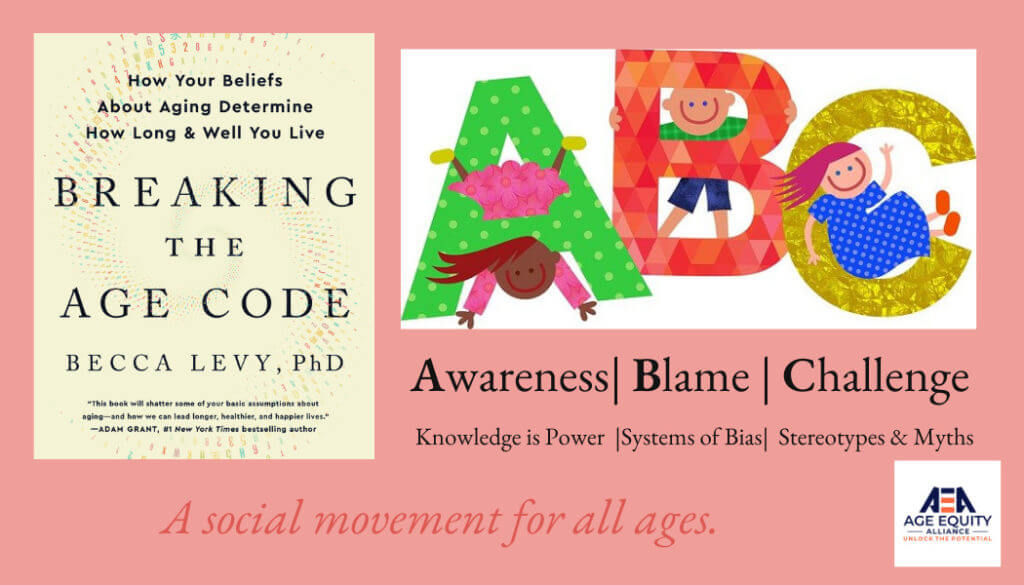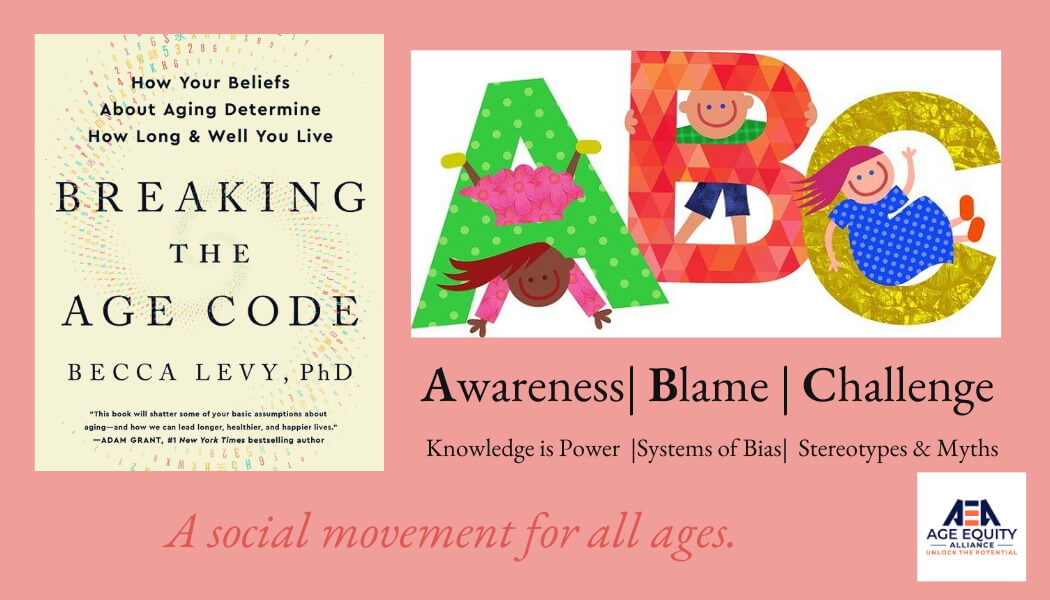I’ve been reading Dr. Becca Levy’s new book “Breaking the Age Code: How Your Beliefs About Aging Determine How Long & How Well You Live.” Dr. Levy is well known for determining that positive age believes can add 7.5 years to a person’s life.

Dr. Levy is–as AEA research and academic advisor Daniel Jolles put it–a legend in the space of age and aging, a rock star to admire for her drive and determination. I’m reading her book to continue expanding my own understanding for why agist attitudes are so prevalent and what we can do to change that.
Creating Change
One of the reasons I love Becca Levy’s new book “Breaking the Age Code” is that she makes addressing age bias and stereotypes easy. It’s all about remembering our ABCs.
A: Increase Awareness
We don’t know what we don’t know. And many of us don’t realize how our age beliefs are impacting others–and ourselves.
B: Place Blame Where It Belongs
A good place to begin, she advises, is by recognizing that it’s not getting older that’s the problem, but rather the fact that our society denigrates older people and the aging process. This is a cultural issue and therefore we see it acted upon by individuals.
C: Challenge Negative Age Beliefs
Eradicating bias and discrimination of any kind requires us to call it out–and that includes statements about age that belittle others. Once you become aware of ageist assumptions, myths, and stereotypes, you’ll be surprised how often you see it openly expressed as if it’s no big deal.
BUT. IT. IS.
We’re in this Together
It takes all of us, across all ages, to reshape societal belief through education, awareness, and accountability. Dr. Levy talks about that, too, in her chapter titled, “Societal Age Liberation: A New Social Movement.”
I’m grateful for the time Daniel and I spent with Dr. Levy. Not only were we able to dig deeper into her work, but we also had the chance to tell her how Age Equity Alliance is working with employers to educate their workplaces on just that… the ABCs!
Dr. Levy shares our perspective that we are culturally nearing a “tipping point” for change. That’s because people of all ages are recognizing the importance of embracing the one thing we all have in common: age. And, if we are lucky, the ability to grow older together.


Leave a Reply